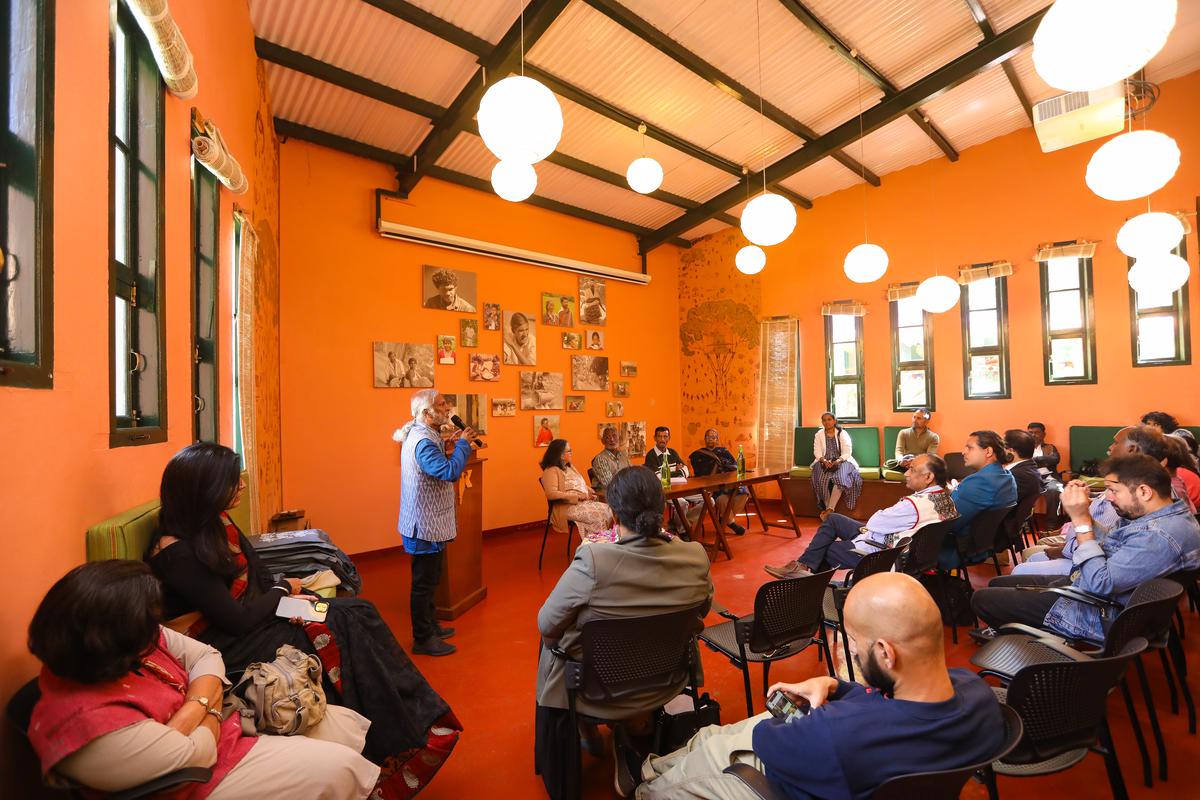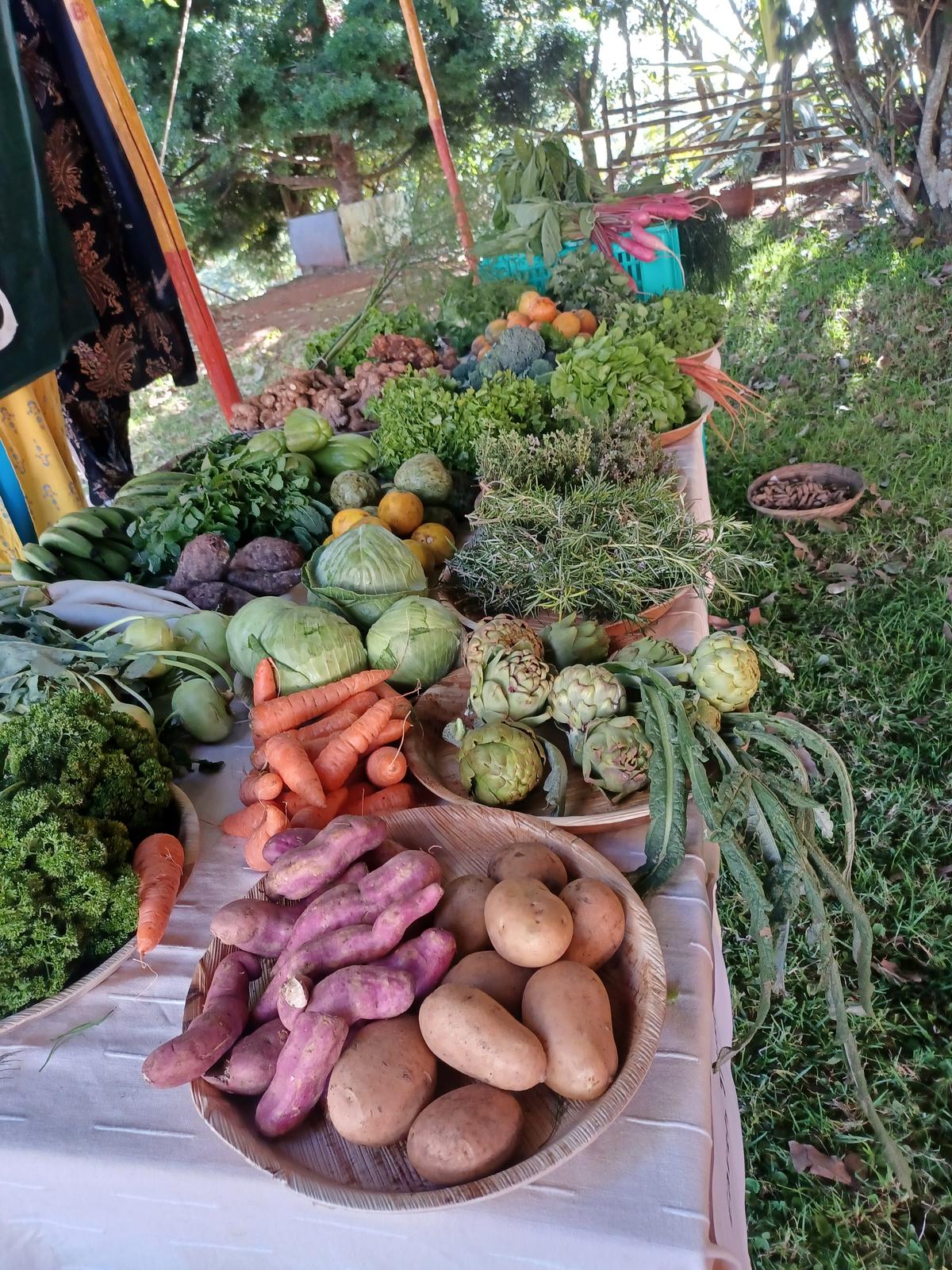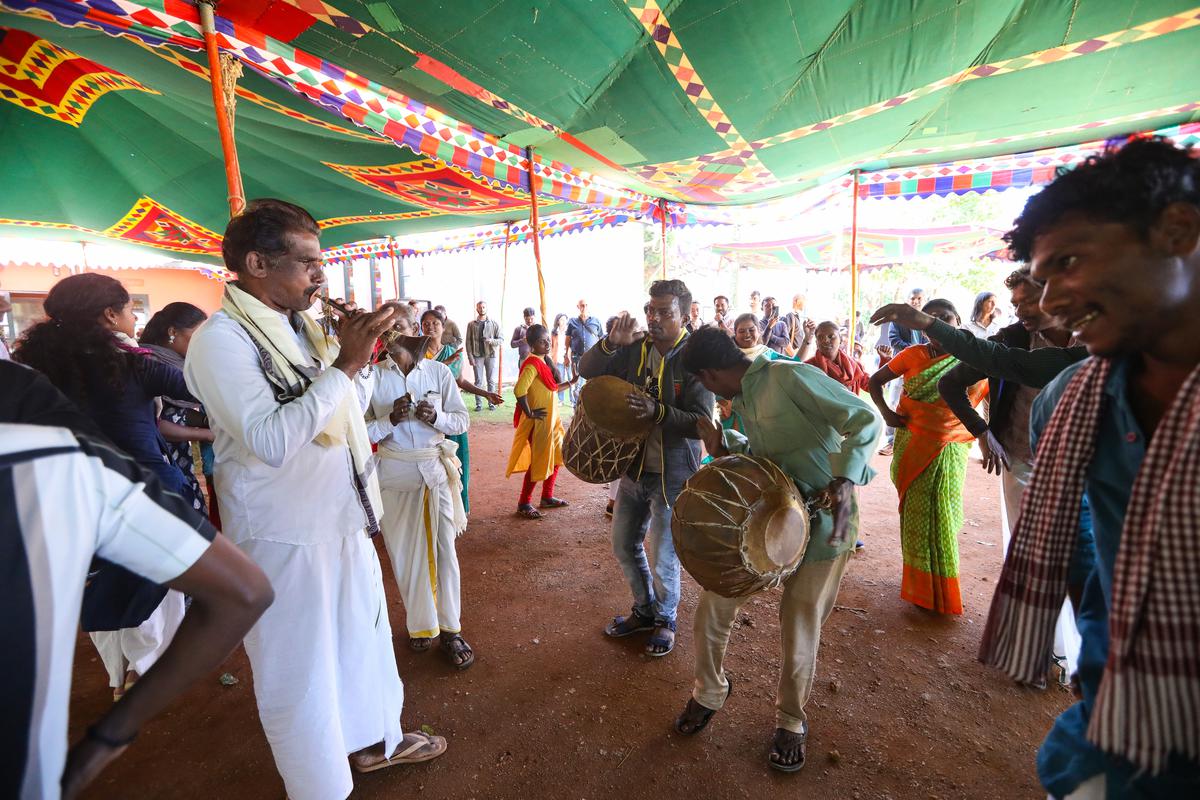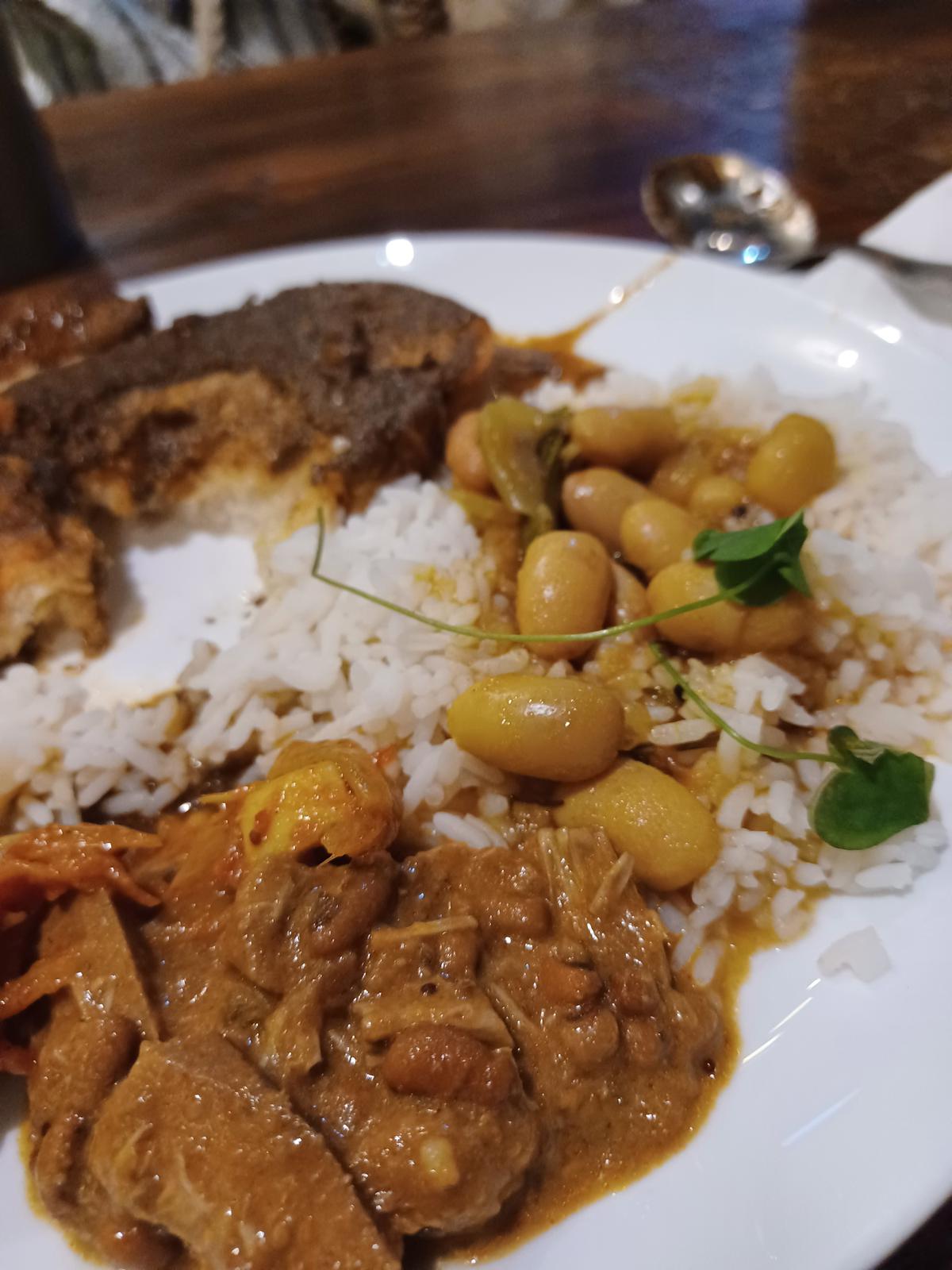The United Nations has declared 2023 the International Year of Millets. Millets, an energy-efficient crop, can be grown with minimal use of resources. “It’s ironic that we find millets only at an occasion like a Wild Food Fest,” says Chef Thomas Zacharias leading an enriching conversation on wild foods and communities on a sunny winter morning at habba, a celebration at the green campus of The Keystone Foundation in Kotagiri. It is a part of the four-day Nilgiris Wild Food Festival, put together by The Nilgiris Foundation (TNF), a not-for-profit organisation established internationally to create awareness on the eco-development initiatives in the Nilgiris Biosphere Reserve. TNF is also a sister concern of The Keystone Foundation, a platform that has been working at the grassroots with tribal communities of the Nilgiris for over three decades. “The festival is a charity event by the TNF singularly aimed at raising awareness towards wild foods, food systems and changing the way we look at food,” says Ramya Reddy, director, TNF.
While the UN is urging countries to rely on locally produced grains, the festival opened a dialogue on wild, local and seasonal foods including millets, conservation and sustainability in the food production industry in a climate-changed future. “Climate crisis is real,” says Zacharias, adding that “it’s time to switch the narration.” “We are disconnected on where our food comes from. The power dynamics of people from cities taking inspiration from indigenous communities should change. Such festivals usher in a change in consumer behaviour and the lifestyle choices we make. We can also effectively use story-telling tools and social media to achieve this.”

Pratim Roy, founder of The Keystone Foundation, leading the conversation on wild foods and communities
At the habba, as the communities showcased a variety of wild foraged produce, including varieties of red, black, and wild ginger, black turmeric (that has high medicinal value), millets, wild tubers like noorai kizhangu, kaatu kizhangu, and edible churuli greens, Irula men and women danced rhythmically to a tune played on drums and pipes.
While Chef Thomas Zacharias Zac’s Mumbai-based Locavore champions for regional cuisine in India where he brings together story telling, working with local produce, and nurturing connections between people within the Indian food system, he pushes the idea of deliciousness on what is available on our plate. “We fail to have ‘profound respect’ for seasonal produce. Without using avocados, lettuce or asparagus, we have created over 180 items on the menu with locally available seasonal produce. We partner with organisations like the Keystone Foundation to talk about the relevance of food tourism to a niche audience that understands and respects food. We make it fun.”

Clean and green vegetables
| Photo Credit:
K Jeshi
Earlier during the festival, Irulas S Sivaraj from Bangalapadigai and R Kannan from Arakkot took participants on a walk to ancestral lands in the southern Nilgiris to showcase the heirloom produce and traditional farming practices. A refreshing lime drink was followed up with snacks like steamed noorai kizhangu and rayan kizhangu (sweet tubers) foraged from the forest. “The tubers have medicinal value and are believed to strengthen the uterus, especially for new mothers. Our ancestors practised cross-cultivation, and along with raagi and saamai, they cultivated 16 varieties of crops including mustard, dals, beans like lab lab, and a variety of greens including amaranthus, povi keerai, kakkai and dragu, keela nelli and seengai keerai, and tubers,” says S Sivaraj.
After a forest walk at Garikur, a halt at Porivarai Centre that educates the visitors on some of the traditional music instruments like arakol, what follows is a satisfying Irula meal with raagi kazhi and pumpkin sambar, thinai rice and mixed vegetables sambar, and naatu kozhi gravy.

The festival kicks off with Irula dance
| Photo Credit:
Special Arrangement
Wild greens, tubers, flowers and seeds, the uncultivated food that grows in hidden valleys and mountain slopes ensure food security. It is the bonus crop, says Lethika George, environmentalist and organic gardener, taking forward the discussion on the impact of climate change on agriculture. “I have an acre of food forest where out-of-season rains have ruined my crops. But, wild greens and wild mushrooms still spring to life. Millets and greens are passed off as poverty food. Chefs are looking at serving wild foods. It has to become food for everybody by making it accessible to everyone. For that to happen, the way we eat has to change,” urges the Kodaikanal-based author whose books include Mother Earth, Sister Seed, Travels through India’s Farmlands and The Suriani Kitchen. Along the same lines, Snehalata Nath and Mathew John, founder-directors of Keystone Foundation, agree that degraded cash crop lands can be converted as wild areas with a thriving bio-diversity.“This will help understand what wild species provide in terms of food and ecosystem services. Once documented, availability and consumption can increase,” says Sneha.
Dr Harsha RP, a conservation biologist at Ashoka Trust for Research in Ecology and The Environment(ATREE) drew attention to the fact that wild food, nutrients and communities are inter-connected. “ Wild foods are seasonal and gives the required nutrients to the communities. With climate change impacting forests, the focus must be of re-wilding techniques and moving away from monoculture. Their culture, and traditions are linked to Nature and focus on complete well-being.”

A Badaga meal with beans curry and jackfruit and horsegram gravy
| Photo Credit:
K Jeshi
At sundown, a 10-course Badaga tasting platter put together by Chef Suresh Belliraj and his family at the picturesque restaurant by the lakeside in Aravenu, took the participants on a trip down forgotten food traditions as soulful Badaga songs performed by a three-member music troupe including singer Belli Raj played at the venue. “I grew up on ragi with sandagais (garlic and tree tomato chutney) and ganje (barley) porridge. Some of the dal varieties like salligai (black masoor dal) have vanished from our food scene,” he says. While the menu tasting session kicked off with bella kapi (coffee with jaggery), other items like uppu korai (roasted and salted beans), spinach on toast, tender bamboo shoots, pothihittu (wheat pancakes), bread and chicken curry, hatchikai (dessert with millets, milk, coconut and sugar) kept coming.
Food raconteur Rakesh Raghunathan points out that as a culinary ambassador his duty is to tell the story of indigenous food. “The panchamirtham served as prasadam in Palani temple is made with hill banana, honey and dates. There is also thenum thinai maavum (honey and fox millet flour) which is intricately connected with tribal communities there. We have over 350 varieties of indigenous rice varieties. At one of my popups I made risotto with karunkuruvai rice which became an instant hit.”

The setting at Le Cafe, Littlearth in Udhagamandalam for sit-down meals during the fest
| Photo Credit:
Special Arrangement
“Plant-based food is the way forward,” says Chef Abhijit Saha whose restaurant Glass Kitchen and Bar in Bengaluru features clean menu, interesting flavour combinations and sustainable dining with a focus on farm to fork. “It is about eating right, and healthy, and conscious food choices.”
“Plant-based food is the way forward,” says Chef Abhijit Saha whose restaurant Glass Kitchen and Bar in Bengaluru features clean menu and sustainable dining with a focus on farm to fork. “It is about eating right, and healthy, and conscious food choices.” Chef Abhijit and Chef Arup Kakati, corporate chef of The Littleearth Group in Udhagamandalam presented sit down multi-course lunch and dinner meals at Le Cafe, Littlearth in Udhagamandalam where the menu featured items like lemongrass infused tart-lets and bamboo shoot pickle on tapioca crisp to wild mushroom ravioli and blue peas tea and passion fruit granita.
Adds Pratim Roy, founder of The Keystone Foundation, “ We live and work with Nature and food is a binder bringing together activists, chefs, food historians and communities. In an era of a climate change impacted world where there is uncertainty looming over quality food, the Nilgiris Biosphere offers hope.”
Stay connected with us on social media platform for instant update click here to join our Twitter, & Facebook
We are now on Telegram. Click here to join our channel (@TechiUpdate) and stay updated with the latest Technology headlines.
For all the latest Life Style News Click Here
For the latest news and updates, follow us on Google News.
